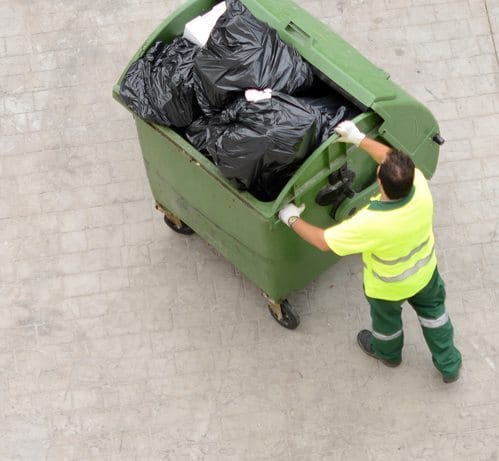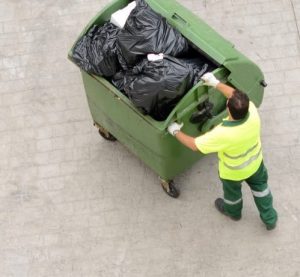
Some things shouldn’t be thrown away because recycling them is so easy—like aluminum cans. Other things truly cannot be thrown away because of laws, regulations, or a company’s environmental ethics. If your organization has not established what items are unacceptable for the dumpster, then it’s time to make a list.
At DJ Products, we’re often stressing the importance of safety for employees who use and maneuver dumpsters with our WasteCaddy dumpster mover. It’s also important to be safe about what items go into the dumpster, in terms of both worker injury and eco-friendly practices.
Common Items That You Can’t Throw Away in a Dumpster
Prohibited items can vary depending on state and local laws or the rules of your trash collection service. Whether prohibited or not, you should think twice about these kinds of items:
• Items with environmental hazards: computers, electronics, rechargeable batteries, appliances that contain refrigerant such as mini fridges and window air conditioners, CFL light bulbs and other items containing mercury.
• Flammable items: gasoline, butane, and other fuels, oil and lubricants, and liquids such as paint, varnish, and wood stain.
• Other dangerous materials: medical supplies such as syringes, sharps, and scalpels. For dangerous items like broken glass and ceramics, use heavy paper bags to prevent injury.
• Check with your city or collection company: construction and demolition waste including dirt, rock, concrete, drywall, roofing shingles, etc.
More About Dumpster Safety
Many of our clients purchase a WasteCaddy dumpster mover after discovering that an alarming percentage of worker compensation claims are related to dumpster duty. Contact us at DJ Products or read more about our WasteCaddy dumpster mover and bin pullers.


